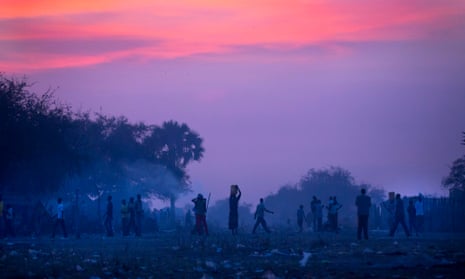There is a problem of sexual violence in the humanitarian community. It is something that is whispered about at parties, in meetings and in our accommodation. Everyone has a story, knows someone who has a story, or has heard of someone who has a story. It extends across many conflict zones and many organisations.
My first goal when I decided to come forward with my story was to encourage other people who have experienced sexual violence to speak out. I believe that this goal has been accomplished. To all the people who shared their stories publicly with the Guardian, you are courageous. To all the people who shared privately with me, thank you for your trust and I hope speaking helps you with your own healing processes.
My second goal is to initiate questions within the humanitarian community to develop an understanding of the extent of the problem, and to bring about an end to it.

How many humanitarians have experienced incidents of sexual violence? How many cases are sexual harassment and how many involve sexual abuse? What percentage are men and what percentage women? Are local women more likely to be targets than international women? Does the LGBT community face particular harassment? Are incidents more prevalent in certain conflict zones? Are humanitarians comfortable reporting incidents? And what is the reaction to reporting?
The depth of the issue can only be determined once we have the answers to these questions and more. That is why I have teamed up with the International Women’s Rights Project, and several generous activists and volunteers to develop a survey that will help us to track the frequency, type and location of incidents. It will allow us to create advocacy materials, inform further research and help to track whether organisations are improving their own practices. Most importantly it will give support to those who have come forward to speak about their experiences.
I ask my fellow humanitarians to fill out the survey – whether you are willing to speak on the record or anonymously, your story is important.
Advocating for change within the humanitarian community will take time. It may very well be a slow and arduous process but it is an important goal. Ensuring that our policies and practices do not allow for sexual violence to occur and for impunity to exist when crimes do occur is incredibly important.
Our internal policies should reflect our external policies. If we are trying to prevent or reduce incidents of sexual violence against beneficiaries, why are we not doing the same for humanitarians?
In order to do our work properly we must ensure that we are taking care of ourselves and being taken care of by our organisations. This includes ensuring that our rights are protected and that we are not exposed to unnecessary risks. It includes the acknowledgement that there are systemic changes that need to be made, that misogyny and homophobia have not been eliminated, and that there are gaps in the legal accountability of the perpetrators of sexual violence and harassment.
We all deserve a safe environment in which to do our work. There are so many issues to be worked on as humanitarians, with new conflicts and protracted conflicts emerging. We cannot allow sexual harassment and abuse in our workspaces to make it even more difficult to deliver aid and humanitarian services throughout the world.
If you would like to contribute to the survey find out more information on the reporttheabuse website or email iwrp.humanitarians@gmail.com.
Join our community of development professionals and humanitarians. Follow@GuardianGDP on Twitter.
